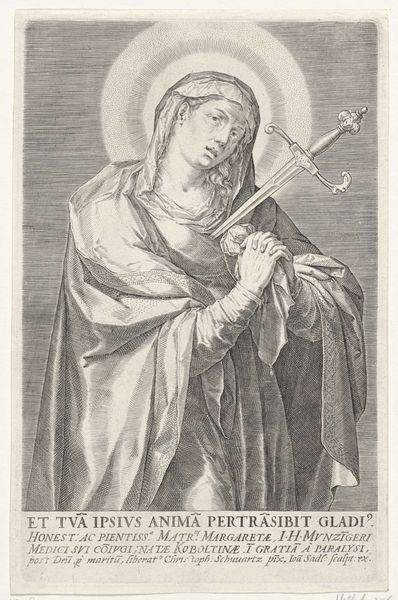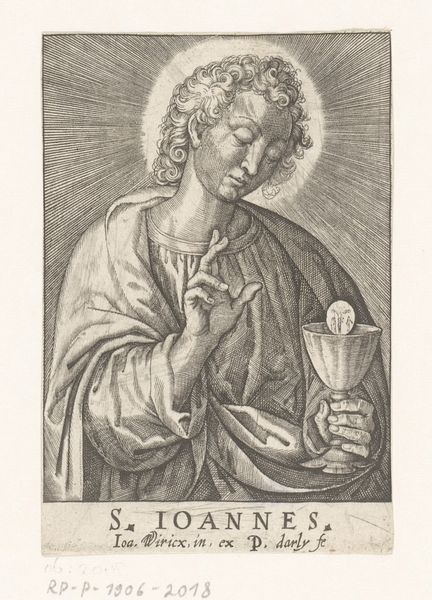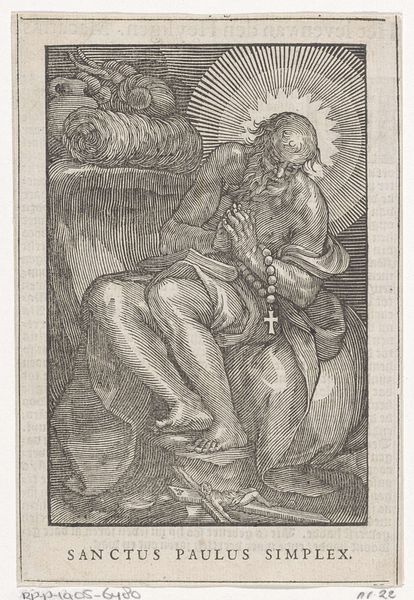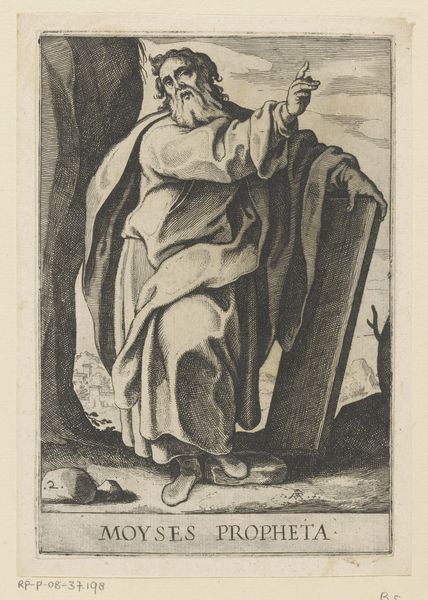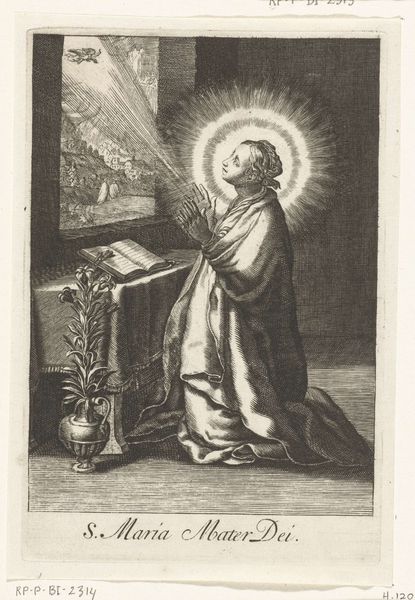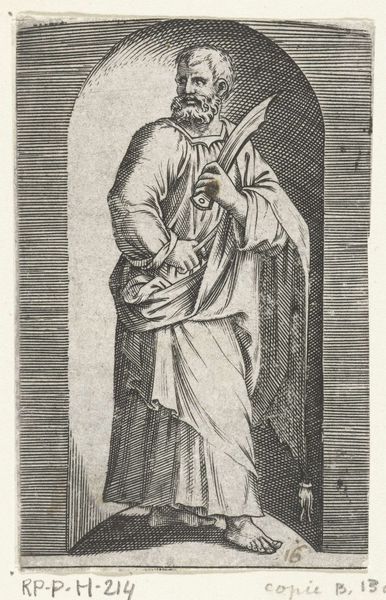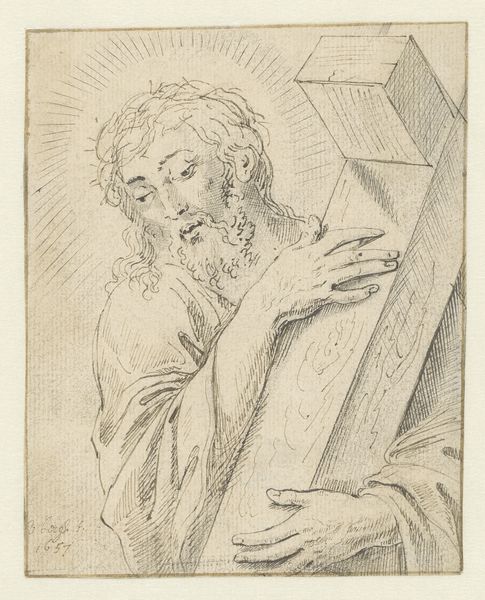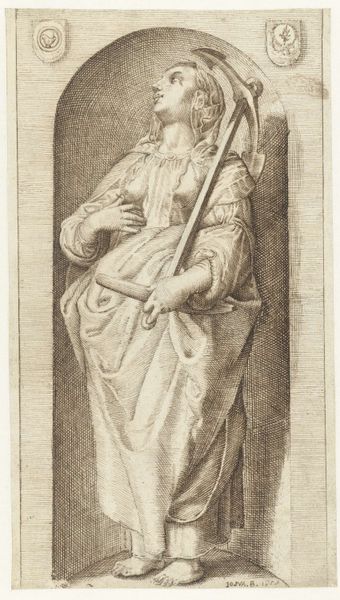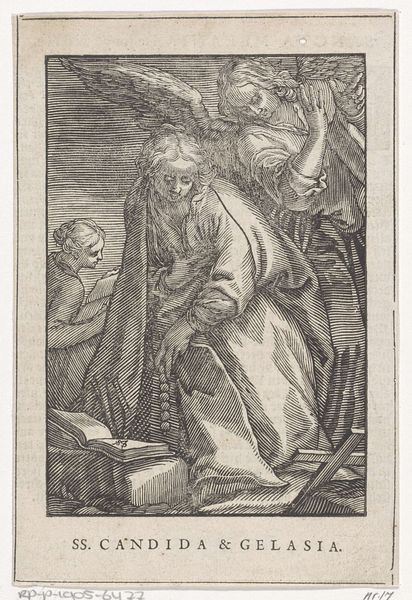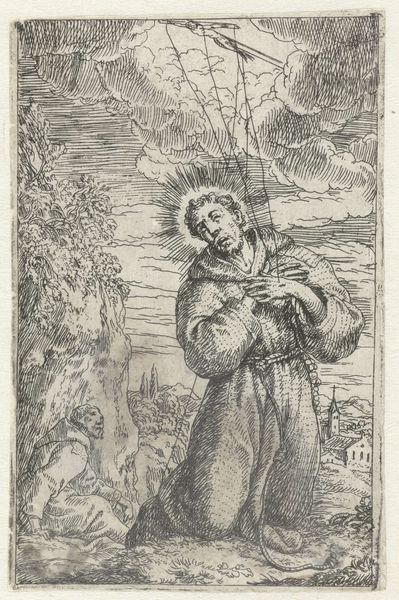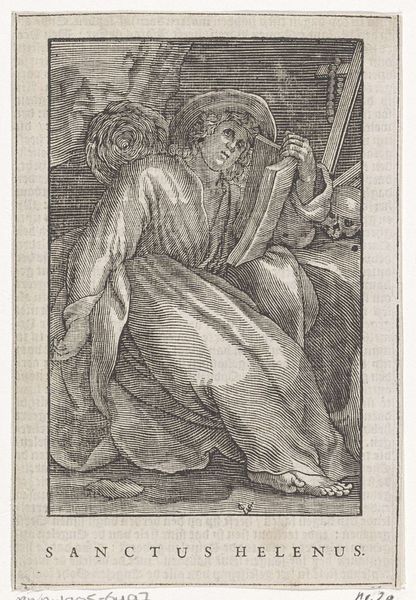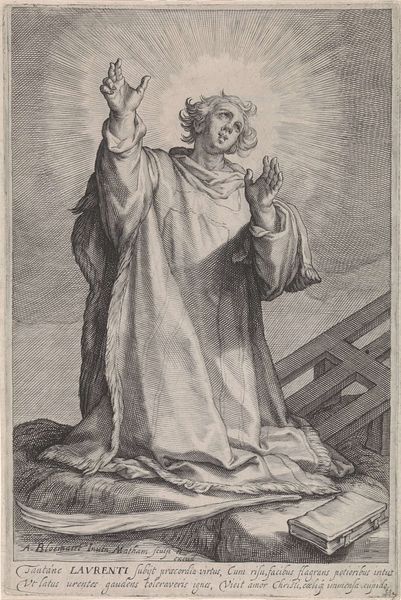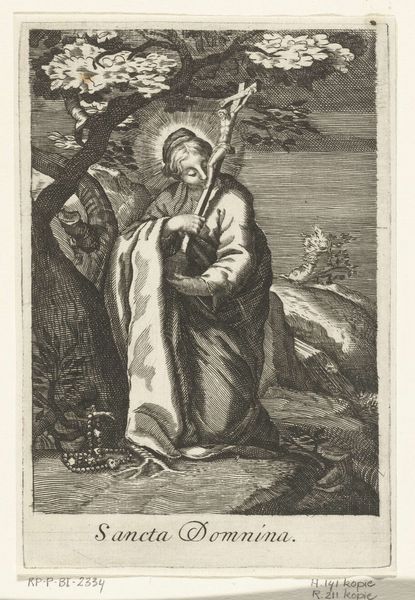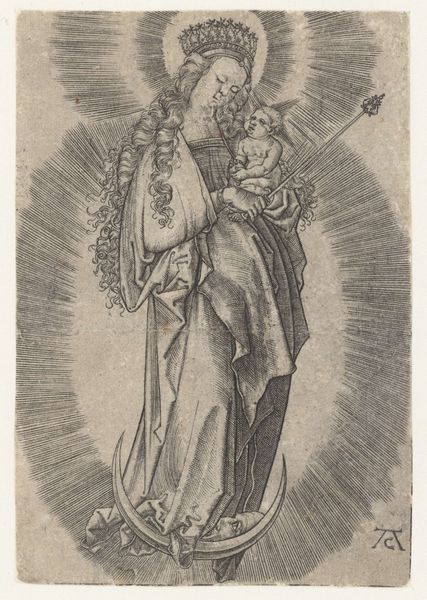
engraving
#
portrait
#
old engraving style
#
mannerism
#
portrait drawing
#
history-painting
#
engraving
Dimensions: height 85 mm, width 65 mm
Copyright: Rijks Museum: Open Domain
Johann Sadeler the first created this intricate engraving, "Christus als Salvator Mundi," around 1600. Notice how the composition is structured around contrasts of light and shadow, achieved through fine, detailed lines. The starkness in the background gradually softens as it approaches Christ, giving him a heavenly glow. The artist uses line not just to depict form, but to create an ethereal atmosphere. Consider the symbolic weight of the orb held in Christ’s left hand, surmounted by a cross. Here, form and meaning converge: the orb represents earthly power, yet it is tempered by the cross, a symbol of sacrifice and spiritual authority. Even the direction of Christ's gaze—downward and to the left—invites contemplation, suggesting a divine being concerned with worldly affairs. Ultimately, Sadeler uses the structural elements of engraving to pose questions about salvation, power, and divinity. It is a complex interplay of aesthetics and ideology, inviting continuous interpretation.
Comments
No comments
Be the first to comment and join the conversation on the ultimate creative platform.
